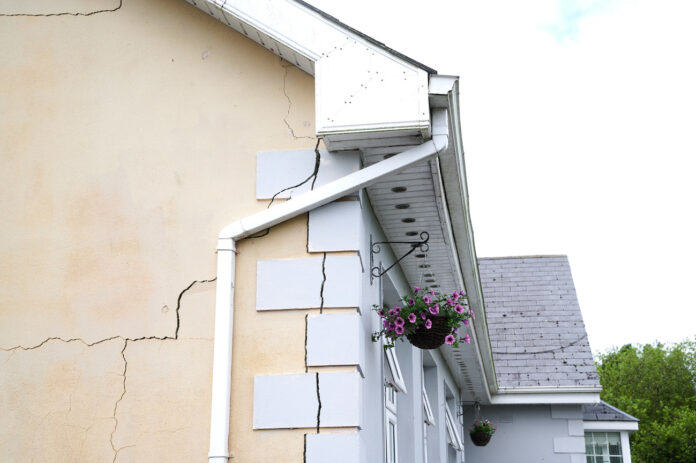A NEW grant scheme to remediate homes with defective blocks have been described by a Clare activist as “onerous, prohibitive and almost logistically impossible” to engage with, in its current draft form.
Draft regulations on the updated grant scheme have been circulated to action groups in Clare, Donegal, Limerick and Mayo, as well as to local authority members. Writing to the Councils, the Minister for Housing called for “good faith constructive engagement” on improving and strengthening the regulations. Minister Darragh O’Brien also expressed the desire to issue final regulations in March “to get the badly needed new scheme up and running”.
Commenting on the draft document, which runs to 133 pages, Dr Martina Cleary of the Clare Pyrite Action Group (CPAG) described it as “impenetrable”. “There are prohibitive, up-front costs placed on homeowners before they can progress through the different stages of the grant application,” she said. “Certain phases of the process are time-limited for the applicant who could be disqualified if they cannot provide the required information in the timeframe. On the other hand, the timeframe for local authorities to respond is unlimited. The process, as outlined, will be difficult, onerous and costly for the homeowner. They will be forced to incur upfront expenses when it comes to the stage where they have to engage the services or engineers and architects. There are layers of bureaucracy proposed here that could tie homeowners in knots for decades.”
Dr Cleary also criticised the lack of provision for pursuing those who supplied defective materials in the first instance. “There is no mention whatsoever of the State pursuing the perpetrators,” she said.
The lack of clarity on the grant rate for Clare homes was also cited by Dr Cleary as a cause for concern. While the minister has said that a rate will be issued by the Society of Chartered Surveyors (SCSI) “in the coming weeks”, the CPAG founder described that approach as “hogwash”. “How can we provide the Department with feedback on the draft regulations when we don’t even know what rate of grant payment will be available in Clare and Limerick?” she said. “We have been raising that question for a year and still have no answer.”
With respect to the IT system that local authorities will use to administer the grant scheme to four counties, Dr Cleary expressed grave reservations. “CPAG has been looking for an information portal and hub for some time, but the only response we have received is waffle,” she said. “It looks like Clare might have to piggyback on the system used in Donegal. There is one homeowner there whose house is literally collapsing on top of him. He has been looking for the grant for two-and-a-half years and is still being told that he doesn’t qualify. So, are we to have that dysfunctional application system foisted on us?”
Members of Clare County Council are to be formally briefed by officials on Friday (February 24), with a view to giving their feedback on the draft regulations. While it was originally proposed that councillors would have to make their submissions by the following Tuesday, February 28, Minister O’Brien has agreed to extend this consultation period to Tuesday, March 14.
Meanwhile, the CPAG have invited all councillors and Oireachtas members to a meeting in advance of their official briefing.
In his letter to the cathaoirligh of the four local authorities, Minister O’Brien outlined that the Housing Agency has established an operational presence in the relevant councils to undertake their new role in relation to the administration of the grant. This is another point challenged by the CPAG in a response document, which says: “They are establishing an office for Donegal and Mayo, with nothing whatsoever for Clare and Limerick. So we are considered irrelevant in their planning and resourcing for the roll out of this scheme.”
The minister has described the updated grant as providing “an unprecedented suite of improvements to the current remediation scheme”. He added that the grant “represents the largest state intervention in addressing defective buildings anywhere in the world”.

